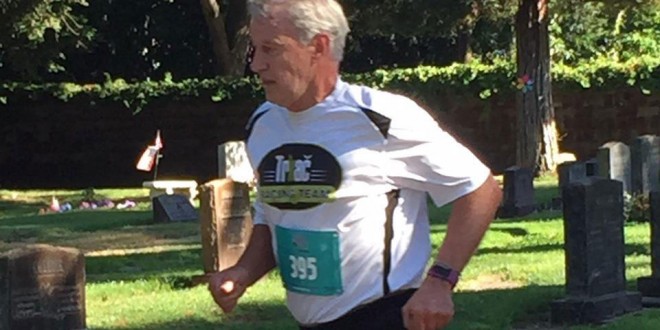Exercise May Slow Brain Aging By 10 Years For Older People.
The research revealed those over 65 who did little or no exercise at all experienced a decline equal to 10 years of ageing compared to pensioners who reported moderate to intense exercise.
Researchers studied data on 876 people enrolled in the Northern Manhattan Study (NOMAS), a research study of stroke and stroke risk factors in the Northern Manhattan community conducted at the Neurological Institute, Columbia University, Division of Stroke and Critical Care. Using an in-person questionnaire, participants were asked how long and how often they exercised during the two weeks prior to that date. Exercise was defined as the maximum intensity of any activity performed and was placed into two classification levels: no exercise to light intensity and moderate to heavy intensity.
Participants also received a brain MRI and a standard neuropsychological examination (NPE). The NPE tested a variety of different cognitive abilities, including processing speed, semantic memory, episodic memory and executive function. Five years later, participants received the examination again.
“The study found that people who did not exercise or exercised with only light intensity experienced cognitive decline that was equal to 10 more years of aging than people who reported exercise with moderate to heavy intensity,” says Dr. Mitchell S.V. Elkind, professor of neurology at Columbia University College of Physicians and Surgeons, attending neurologist on the Stroke Service at NewYork-Presbyterian and an author on the study.
Of the participants, 90 percent reported light exercise or no exercise. Light exercise included activities such as walking and yoga. They were placed in the low activity group. The remaining 10 percent reported moderate to high intensity exercise, which included activities such as running, aerobics or calisthenics. They were placed in the high activity group.
“This research presents us with valuable information that may help people 65 and older retain their memory and thinking skills,” says Dr. Joshua Z. Willey, assistant professor of neurology at Columbia University College of Physicians and Surgeons, assistant attending neurologist on the Stroke Service at NewYork-Presbyterian and lead author of the study. “The population of people 65 and older in the United States is increasing, and so should our efforts in helping these individuals do everything they can to live long lives with their memories intact.”
For those individuals who showed no signs of memory and thinking problems at the beginning of the study, researchers found that those reporting low to no activity levels showed a greater decline over five years than those with high activity levels. Participants were tested on how fast they could perform simple tasks and how many words they could remember from a list. The difference was equal to that of 10 years of aging. Researchers adjusted for factors that could affect brain health, such as alcohol use, smoking, high blood pressure and body mass index, and the 10 years difference remained.
“More research is needed to confirm these findings, but the results of the study are very favorable,” says Dr. Ying Kuen K. Cheung, professor of biostatistics at Columbia University Mailman School of Public Health and one of the study’s key researchers. “We can easily prescribe exercise to patients — it’s a low cost method that may help prevent memory decline.”
The study did not collect information on lifetime patterns of exercise, such as midlife exercise, which others have shown can have a significant effect on multiple outcomes associated with aging, including cardiovascular mortality and stroke.
Agencies/Canadajournal
 Canada Journal – News of the World Articles and videos to bring you the biggest Canadian news stories from across the country every day
Canada Journal – News of the World Articles and videos to bring you the biggest Canadian news stories from across the country every day



